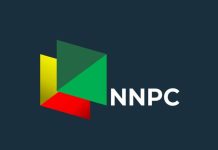The African Centre for Leadership, Strategy and Development (Centre LSD) has hosted a policy dialogue on the fuel subsidy regime in Nigeria. The objective of the dialogue which took place last week Thursday was to diagnose the associated policy problems as well as proffer alternative approaches to dealing with the problems around Nigeria’s subsidy regime.
Speaking at the dialogue session, the lead speaker, Mr Eze Onyekpere, lead director at the Centre for Social Justice described the subsidy regime in Nigeria as one fraught with irregularities, adding that none of the subsidy regime’s promises had been achieved.
“The cost of fuel plays a significant role in determining the cost of living in Nigeria as such fuel subsidy should be about interest free economic support; however, none of the subsidy regime’s promises have been realized. No ministry, department or agency is following up in terms of reporting on the achievement of the fuel subsidy model in Nigeria,” he said.
“Thus, if we must maintain subsidy, it should be a subsidy on production and local refining which will enhance the standard of living of Nigerians; we need rapid investment in refineries and petrochemical industries. In 2011, President Jonathan promised to build 4 refineries, yet, 3 or 4 years after no one is talking about it anymore. The SURE P, which is supposed to cushion the effects of the removal of fuel subsidy, is facing monumental challenges including that of transparency and accountability.”
Also speaking at the dialogue session, Joseph Amenaghawon, the Open Society Initiative in West Africa, OSIWA’s program coordinator for economic governance called on the need for “middle ground” discussion between the government, labour movements and civil society organizations on the fuel subsidy regime in Nigeria. “We continue to complain about lack of political will to effectively implement the fuel subsidy regime when what we need is a middle ground conversation, we need to engage those arguments for the development of our economy,” he said.
Participants at the dialogue were drawn from the Nigeria Extractive Industries Transparency Initiative (NEITI), ministry of finance, Nigerian Labour Congress (NLC), Department of Petroleum Resources (DPR), The Nigeria Union of Petroleum and Natural Gas Workers (NUPENG), civil society organizations working in the extractive sector, the academia and media.




